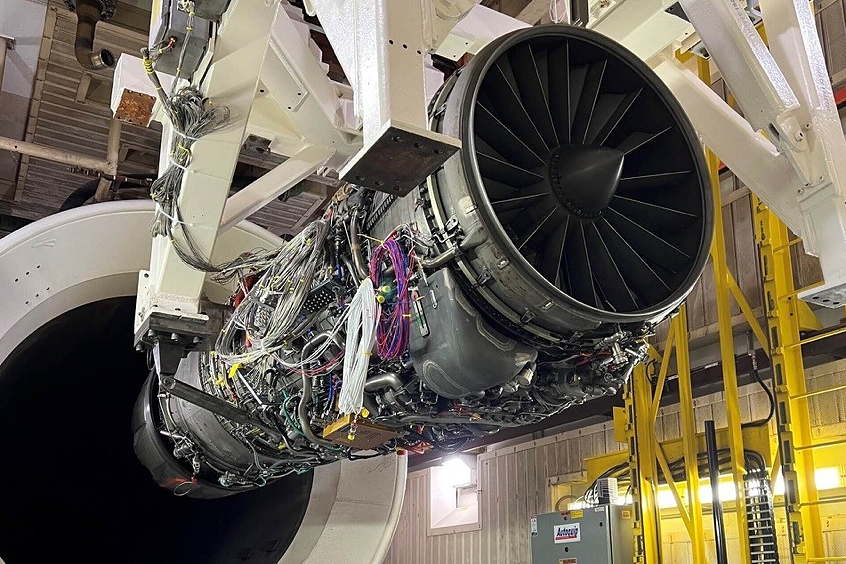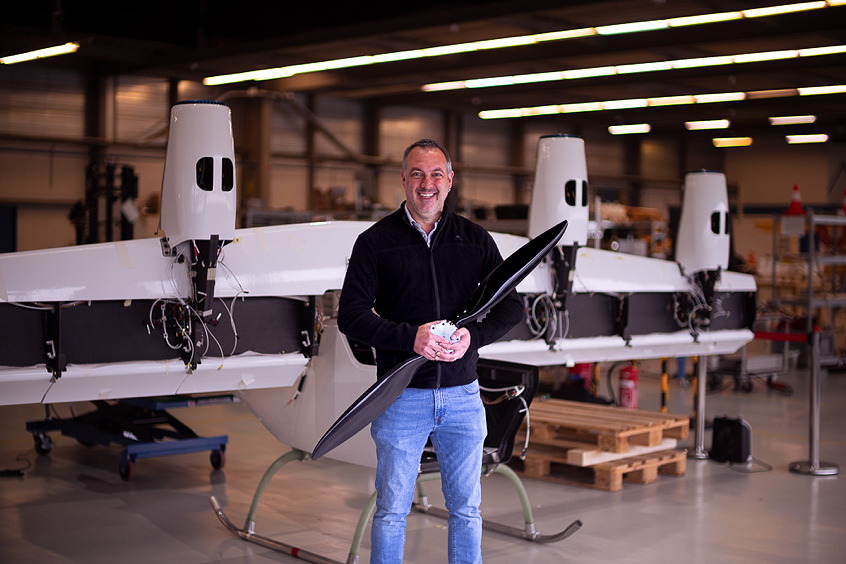NOVAdev Inc. has unveiled its Hydrogen Flux Capacitor design for mainline commercial aircraft requiring transcontinental and transatlantic range. The company is developing its innovative and scalable Hydrogen Flux Capacitor – based on NASA technology – for small, regional and mainline hydrogen aircraft applications.
The HFC stores hydrogen in an “adsorbed solid-state” yielding 30% greater density than liquid hydrogen tanks (and a fraction of the weight and volume of high-pressure gas cylinders). Those features greatly reduce the volume, weight, cost and operational complexity of airborne hydrogen fuel storage. Due to its innovative design and low 15 to 30 psi storage pressure, the Hydrogen Flux Capacitor can be shaped to more efficiently conform with aircraft structures. Most importantly, hydrogen storage in a solid-state form eliminates key failure modes associated with liquid and gas storage, enhancing the HFC's safety characteristics and significantly easing its testing requirements for FAA certification.
Airborne hydrogen storage systems are a crucial enabling technology for the aviation industry in meeting its sustainable climate goals, and hydrogen is a key element of the nation's sustainable climate agenda. Hydrogen combustion releases no carbon emissions but storing hydrogen on aircraft is a complex challenge. While being only one third of the weight of jet fuel, it also requires four times jet fuel's storage volume (for equivalent energy). In addition, Federal Aviation Administration (FAA) certification requires safety measures that drive a substantial portion of a hydrogen systems' weight and cost. Both liquid and gaseous hydrogen storage approaches, while being well suited to ground transportation applications, face difficult challenges in efficiently conforming with the shape, volume and weight restrictions of aircraft structures, as well as safety engineering for certification.
“What we are developing truly addresses aviation's biggest issues with hydrogen which are volume, weight, cost and safety,” explains Michael Kramer, NOVAdev founder and CEO. “Our Hydrogen Flux Capacitor requires only low-cost, commercial off-the-shelf materials and readily scales for large or small aircraft. It truly enables hydrogen's efficient integration into aviation in ways that other systems cannot and offers outstanding safety benefits. We store hydrogen as a compact solid at low pressure. That is as transformative for hydrogen as LEDs for lighting.”
Testing to date by NOVAdev and NASA has demonstrated the technology's basic storage capabilities, operation and performance as well as its potential to scale for large and small applications. Tests simulating a catastrophic accident where the HFC is ruptured demonstrated exceptionally slow sublimation – like solid dry ice that evaporates without liquefying – a key safety feature for airborne hydrogen storage.
NOVAdev's Hydrogen Flux Capacitor produces hydrogen gas on demand for fuel cell electric or turboelectric systems. It is fueled with liquid hydrogen which rapidly adheres, or technically “adsorbs”, to nano-material filling an insulated container. Gaseous hydrogen is then released by a controlled thermal input system. Complex molecular forces cause adsorbed hydrogen to assume a “solid-state" condition that is only two thirds of the volume of the liquid hydrogen used for fueling. That property is transformative for airborne systems where volume efficiency is crucial, hydrogen in liquid form requires special handling, and sloshing of liquid hydrogen in storage poses challenges for aircraft operation and fuel efficiency.
NOVAdev is exploring applications for Hydrogen Flux Capacitor technology across markets where its smaller and flexible form factor is an advantage, but the company's immediate focus is aviation. “We've done design studies of the HFC for 737 and A320 scale passenger transports, regional turboprops such as the ATR-72, and even the Cessna 208 Cargomaster,” explained Richard Bartz, NOVAdev vice president of business development. “Our latest work is focused on aircraft of the 757 and 767 size, where flights regularly range 3,000 nautical miles and more for transcontinental and transatlantic routes. We're supporting hydrogen aircraft in development today and needing a hydrogen storage solution that is operationally efficient as well as safe, cost effective, and most importantly certifiable.” The company believes urban air mobility, rotorcraft, and drones are also high potential markets for the technology.
| Contact details from our directory: | |
| NOVAdev | Fuel Cells, Fuel Management Systems |
| Related directory sectors: |
| Electrical Power Systems |
Weekly news by email:
See the latest Bulletin, and sign up free‑of‑charge for future editions.

Amprius and Stafl team up for battery pack innovation

RISE engine efficiency project gains momentum

Dufour picks Mejzlik propeller blades for the Aero2
